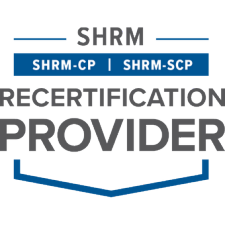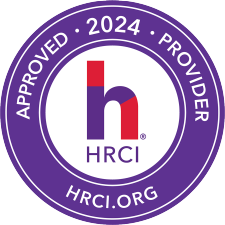MS IN HUMAN RESOURCE DEVELOPMENT
The Master of Science in Human Resource Development (MSHRD) degree is a generalist program that provides students with a comprehensive overview of the HR field. The courses provide a practical environment where students have the opportunity to perform many of the business activities that practitioners regularly encounter.
Our program's balance of theory and practicum, along with faculty who are active in the industry, provides a focus on emerging trends in this evolving field to prepare our students for the dynamic human resources profession. Villanova HRD fosters development of knowledge and skills that can be applied to the rapidly changing field, from law and regulation to human behavior and business.
Students may choose to study the MSHRD in either an on-campus and online format or 100% online, and you can choose your course modality each term based on your needs and schedule. At Villanova, we value learning together, that's why even our online courses are synchronous, meaning you will meet live virtually each week with your instructor and classmates.
WHY CHOOSE OUR MSHRD?
FLEXIBLE FORMAT
Choose to study the MSHRD in an online and on-campus or 100% online format
TRUSTED PROGRAM
Join one of the longest-running graduate human resource programs in the country
SHRM/HRCI CERTIFIED
Earn recertification credits with SHRM and HRCI-certified classes
EXPERT FACULTY
Learn from active practitioners and research faculty that are invested in your success
LEARNING OUTCOMES
- Use evidence-based HR expertise to set the strategic direction of the HR function necessary for pursuing organizational goals and maintaining a satisfied and engaged workforce.
- Establish practices and initiatives that allow the organization to meet its talent needs, enhance the capabilities of employees, promote positive relationships, develop a total rewards program and leverage HR functions.
- Deploy evidence-based interventions to facilitate organizational change and development initiatives.
- Manage organizational risks and threats to the safety of employees and comply with applicable laws and regulations.
- Use evidence-based HR expertise to set the strategic direction of the HR function necessary for pursuing organizational goals and maintaining a satisfied and engaged workforce.
- Establish practices and initiatives that allow the organization to meet its talent needs, enhance the capabilities of employees, promote positive relationships, develop a total rewards program and leverage HR functions.
- Deploy evidence-based interventions to facilitate organizational change and development initiatives.
- Manage organizational risks and threats to the safety of employees and comply with applicable laws and regulations.
- Cultivate inclusive work environments regardless of employees’ culture, ethnicity, and personal background or lifestyle.
- Enable HR professionals to develop a diversity-oriented mindset as a professional trait.
- Create strategies that are adjusted to different cultural backgrounds and international environments.
- Create and maintain a network of professional contacts.
- Build and maintain professional relationships.
- Work as an effective member of a team.
- Develop an ability to source, analyze, and understand the meaning of scientific research, organizational data, professional expertise and stakeholder perspectives.
- Cultivate an ability to evaluate organizational data to accurately understand key drivers of business and HR strategy.
- Assimilate the data in an organizational context to generate recommendations and effective solutions.
My research at Villanova helped establish me as a subject matter expert in my field. It opened doors for me to consult with senior leadership teams at my organization, using evidence-based insights to optimize our recruitment processes enterprise-wide. That level of real-world impact, rooted in my Villanova education, is something I’m incredibly proud of. For anyone considering the HRD program, I can confidently say that Villanova provides not just an education, but a community that fosters growth, innovation, and career-defining opportunities."
Kelly Morgan, MS '24
Senior Campus Manager, University Relations at Lockheed Martin




